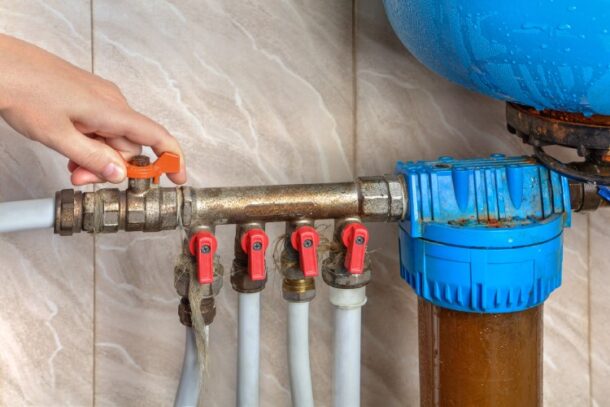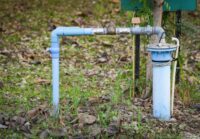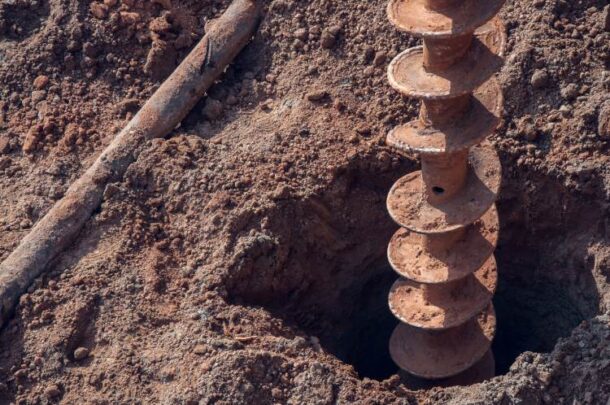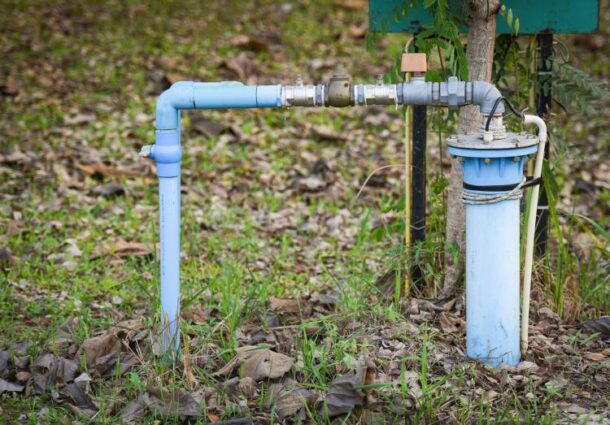One of the most frequent issues with domestic plumbing is inadequate water pressure, regardless of whether you use city water or well water. Old pipes and insufficient well water flow are two factors that may contribute to a decline in water pressure in residence. Several solutions exist depending on the issue’s root, but a constant Read more
Well Water

One of the most frequent issues with domestic plumbing is inadequate water pressure, regardless of whether you use city water or well water. Old pipes and insufficient well water flow are two factors that may contribute to a decline in water pressure in residence. Several solutions exist depending on the issue’s root, but a constant pressure system well can increase your water pressure to the desired levels.
Let’s examine in greater detail what a constant pressure system for wells is and how it might benefit you.
What Is A Constant Pressure System?
A constant pressure system is a device that helps increase the pressure of the water where you install it. A constant pressure system needs a pressure tank, a pump, and a pressure switch or sensor, just like a standard pump system. The pressure sensor notifies the pump control panel when there is a change in system pressure. The pump is then instructed to operate at a pace necessary to maintain optimal pressure and volume by a controller. Depending on the particular system, the pressure setting can be changed at either the pressure sensor or the motor controller.

Conventional Water System Vs. Constant Pressure System
In contrast to a conventional system, the pressure tank in a constant pressure system is often significantly smaller. It only holds a tiny amount of water and primarily serves as a pressure buffer. Similar to those in a submersible system, the pumps utilized here are constant-pressure. The distinction is that the pump’s motor operates at varying speeds based on water demand. A variable frequency motor controller regulates the speed of the motor.
How Can A Constant Pressure System Help You
A constant pressure system can help you in the following ways:
It Will Help You Save Space, Energy, And Money
Considering the space you have in your home, and these tanks can be made to any size, you may save a ton of room in your home by using constant-pressure water systems, which require significantly smaller tanks than conventional systems. You will only occupy more space than necessary in this approach.
A system with constant pressure will aid in energy conservation. Powering your home’s appliances requires less energy since it enables them to operate more effectively.
Additionally, the speed of the pump is determined by the water demand in your home, so it will operate more efficiently during months when you use less water than usual. You may experience a decrease in your energy costs, and as a result, saving you money.
It Can Be Useful In Times Of High Water Demand
When the level of water and pressure in the reservoir drop, a typical well pump will replenish the tank with water. When you turn on a faucet, run a load of laundry, flush a toilet, or shower, the pressure in your tank will decrease.
Your water pressure will decrease if you attempt to do more than one of these simultaneously with a regular pump.
The water level in your tank is kept constant by constant-pressure water systems. This will prevent pressure drops when using many water appliances at once. But you don’t have to worry about these issues, owing to the constant pressure water system.
It Creates An Efficient System
Constant pressure water systems will make your systems, particularly your water treatment system, operate more effectively. For water treatment systems, low water pressure is a significant barrier.
For them to function correctly, water softening or filtering systems need a particular amount of pressure. Water systems with constant pressure control the pressure at all times, assuring that it is adequate for these filters to function effectively.
Conclusion
Robust and reliable water pressure is crucial for everyday household activities and tasks. Your appliances will function as efficiently as ever with constant-pressure water systems, as you’ll always have high-quality water pressure.

Private well water is not filtered and disinfected before entering a home, unlike municipal water. Even though well water is exempt from specific requirements for public water sources, it still needs to be clean and safe to consume. Installing a well water treatment system is necessary to eliminate typical well water impurities such as coliform Read more
Private well water is not filtered and disinfected before entering a home, unlike municipal water. Even though well water is exempt from specific requirements for public water sources, it still needs to be clean and safe to consume. Installing a well water treatment system is necessary to eliminate typical well water impurities such as coliform bacteria, iron, nitrates, and sulfate.
When removing undesirable components from a well water, distillers, whole-house water filters, water softeners, and disinfection systems are all viable solutions. This is true in all areas of the country, in fact, check out residential well drilling in Indianapolis for information in that area.

How Well Water Gets Adulterated
Most well water requires little filtering if the screen and pump are kept in good condition. But there are several ways for a well to get polluted.
It is simple for toxic substances to leak into the aquifer and contaminate the groundwater close to your well, or polluted water can enter improperly built or neglected wells. Private well owners should be mindful of any surrounding land-use activities that could have a detrimental impact on groundwater quality. This includes livestock grazing and feeding activities, insecticides, herbicides, fertilizers, and unlawful disposal.
Additionally, putting septic tanks too close to a well will contaminate your freshwater source if there is a sewage leak. In addition, the water supply can be contaminated by naturally occurring substances like iron and manganese, as well as runoff from populated regions.
Keeping Up Water Well
Ensure a sufficient water supply and ongoing water safety. To assure water quality, a testing facility should test well water yearly for E. coli and total coliform bacteria.
Extensive testing is advised every three years for total dissolved solids, pH, and tests about land use that is now taking place or anticipated to occur near the well. Additionally, seek tests that will assist in determining the cause of any overt stains, tastes, or smells in the water.
Yearly inspections of water wells are also recommended for evidence of harm or pollution. Make sure the 100 feet surrounding the well are free of any objects or debris that might contaminate the water.
Well Water Treatment System
You must accurately assess the well water quality and grasp how the well water treatment system functions to have the best and most effective treatment system.
Most water treatment methods work best under certain circumstances. For instance, the well water in this area is naturally acidic and contains iron. Since many iron filtration systems cannot wholly remove iron from acidic water, the acidity of the well water must first be handled.
The well water must be checked for chemical pollutants, bacteria, unpleasant tastes and smells, and stains before selecting a well water filter system. In addition, iron, manganese, total dissolved solids, pH, calcium, hardness, alkalinity, turbidity, arsenic, nitrate, and other substances must also be analyzed.

Different Well Water Treatment Systems
There are multiple varieties of well water treatment systems, each designed to eliminate certain impurities from your water source. These systems consist of:
- Water Softeners
- Whole House Filters
- Reverse Osmosis Systems
- Chemical Disinfection Systems
- UV Disinfection Systems
- Distillation Systems
What Is The Cost Of Treating Well Water?
It varies depending on the approach you choose. Some home systems utilize more hardware and need more upkeep than others. Some well-related systems cost more money upfront but require little maintenance or special care throughout their lifespan.
Hydrowells Well Water Treatment System
Hydrowells team is pleased to provide a 100% client satisfaction promise and an on-time guarantee. In addition, we ensure that our staff members are well qualified and outfitted to handle the variety of well-servicing requirements for your house result.
Our objective is to offer our clients extremely competent well drilling services. We take pleasure in providing consumers with dependable, warm service they can rely on. For any emergency, our knowledgeable crew is on call around-the-clock.
